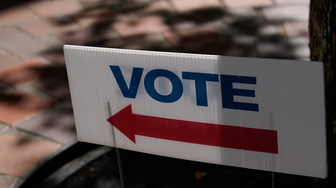- Labor leads 53% to 47% over Coalition in the two-party preferred vote, up 0.5%
- Labor’s primary is 33% (up 1%), Coalition is 33%, (down 0.5%).
- Anthony Albanese leads as preferred Prime Minister by 48% over Peter Dutton’s 38%
The latest YouGov Public data poll, conducted between April 11 and 15, reveals a significant political shift as Labor extends its lead to 53% in the two-party preferred (2PP) vote, compared to the Coalition’s 47%. This marks Labor’s strongest 2PP result in 18 months and exceeds its 2022 federal election performance of 52.1%.
For the first time in a YouGov Public Data poll, Labor and the Coalition are tied on primary vote at 33%. While Labor’s vote has risen by 1%, the Coalition’s support has slipped by 0.5%. The Coalition’s current figure is 2.7% below its 2022 election result and, if repeated at the ballot box, would represent the lowest primary vote recorded by the Coalition since the Liberal Party’s formation in 1944.
Minor parties and independents continue to hold a decisive presence, with a combined 34% of the primary vote, slightly edging out the major parties. Among them, One Nation has dropped to 7% (-1.5%), while the Greens (13%), Independents (9%), and Others (3%) remain steady. Trumpets of Patriots currently sit at 2%.
Paul Smith, YouGov Director of Public Data, commented, “In an election held today, the Coalition would receive the lowest vote they have received since the Liberal Party was formed in 1944, with Labor having a clear lead in all states except Queensland and leading in Outer Metropolitan electorates that will decide the election.”
Dutton struggles in crucial outer metro seats
Albanese has stabilised his standing as preferred Prime Minster recording 48% support for the second week in a row. He leads Peter Dutton by 48% to 38%. Albanese is slightly more popular among men (49%) than women (47%).
Dutton is particularly unpopular in outer metropolitan electorates, where he trails Albanese by a significant 13%. These seats are considered critical battlegrounds for the next election.
“Peter Dutton’s 13-point deficit in the outer suburbs is a clear sign that voter opposition to him becoming Prime Minister is dampening support for the Coalition in electorates critical to winning government,” Smith added.
Net satisfaction
Despite both major leaders maintaining negative net satisfaction ratings, Dutton's standing has deteriorated more sharply, falling from a +11 net satisfaction in early April to -10 in the most recent poll:
- Prime Minister Albanese has a net satisfaction rating of -6 (43% satisfied, 49% dissatisfied)
- Leader of the Opposition Peter Dutton has a net satisfaction rating of -10 (40% satisfied, 50% dissatisfied)
The survey was conducted between April 11 and April 15th, 2025, with a sample of 1506 Australians. YouGov will continue to publish weekly tracking polls leading up to the next election. For insights on the Australian Federal election. Please see more insights on the YouGov website.
For further information or comment, contact Paul Smith, Director of Public Data, at paul.smith@yougov.com
Methodology: This survey was conducted between April 11th and April 15th with a sample of 1506. Results are weighted to be representative of the population by age, gender, education, AEC region, household income, weighting by past vote (Federal vote and Voice referendum), with an effective margin of error of 3.3%. See Australian Polling Council methodology statement for full weightings. YouGov allocated preferences using the respondent allocated methodology set out on MRP methodology page.
YouGov correctly predicted the result of the recent referendum at 40% Yes, 60% No, and is a founding member of the Australian Polling Council, as well as a global leader in polling research. We are the only polling company to have polled our entire panel of survey participants to ensure our polls are representative of how Australians voted in the Voice referendum.




